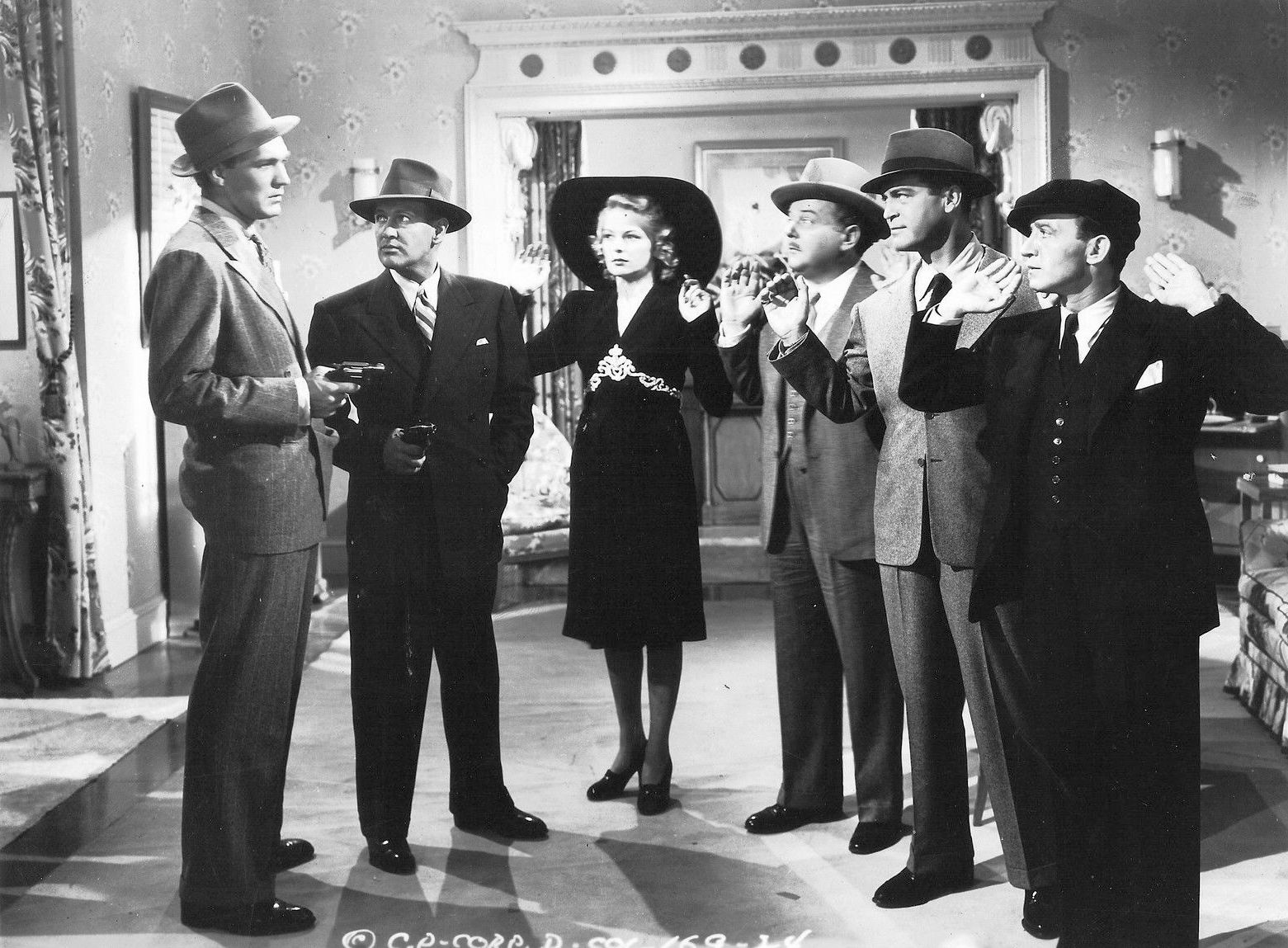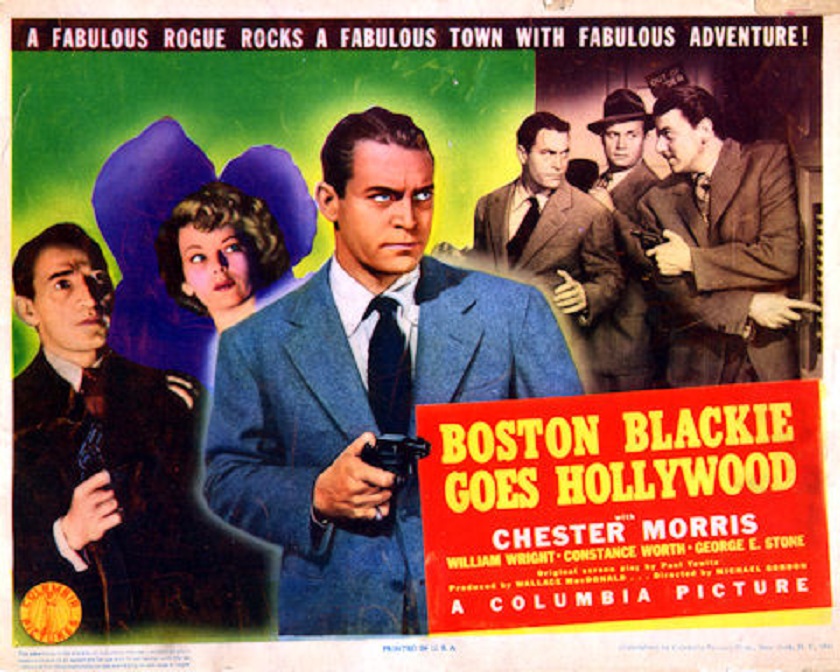Review: Boston Blackie Goes Hollywood (1942)
Posted by Ivan G. Shreve, Jr. on Apr 23rd 2014
Though the title of the fourth entry in Columbia’s Boston Blackie series—which stars Chester Morris as reformed safecracker/jewel thief Horatio Black, the hero created by pulp fiction author Jack Boyle—affirms that Blackie and his sidekick The Runt (George E. Stone) are headed for the motion picture capital…it’s technically not the original destination on their itinerary. Blackie and The Runt have plans to vacation in Florida…but on the eve of packing for their trip, they hear a prowler in Blackie’s apartment and contact the police. To their relief (and amusement), the intruder turns out to be none other than Blackie’s frenemy, Inspector Farraday (Richard Lane).
Farraday has suspicions regarding his nemesis’ plans for Florida fun and sun—particularly after hearing the news that the famed Monterey Diamond has vanished, and he’s convinced it was too tempting a target for a man formerly in Blackie’s line of work. Farraday has his dimwitted sidekick, Sergeant Matthews (Walter Sande), keep an eye on Blackie and The Runt at the train station. There, Blackie is handed a note from his good friend Arthur Manleder (Lloyd Corrigan), who desperately needs Blackie’s help to bring $60,000 out to him in Hollywood (the money is stored in a wall safe in Manleder’s NYC pad). The whereabouts of the missing diamond can be traced to Arthur—he’s being kept under wraps by two goons (John Tyrrell, Forrest Tucker) in the employ of Blackie’s old cellmate, Slick Barton (William Wright), who’s got big plans for the sixty large…so our heroes make tracks for the West Coast by plane with Farraday and Matthews close on their heels.

Boston Blackie Goes Hollywood continues the streak of enjoyable comic mysteries in Columbia’s franchise; the only real disappointment is that the title of the film promises a little more than it’s capable of delivering. Screenwriter Paul Yawitz should have capitalized on Blackie’s Hollywood venture by making it seem like he’s actually in Hollywood; that portion of the picture looks pretty much like the same locale as the previous entries (perhaps he could have worked in a sequence around the Columbia lot). But this shouldn’t dissuade you from watching Hollywood, because it’s really an enjoyable entry, with all of the expected jokes and situations that define the Boston Blackie trademark. For example, Blackie learns the identity of the man who’s invaded his apartment (a revealing leg is sticking out of a fireplace) by giving the trespasser a hotfoot. Later, when Blackie needs to use a phone booth to contact his lawyer, he and the Inspector do some amusing business by playing tic-tac-toe on the window of the phone booth door. Blackie also spends a good portion of Hollywood in disguise: with the help of Jumbo Madigan (Cy Kendall), he adopts the distinguished persona of “Professor Stratton”…and The Runt reluctantly plays “Junior,” his nephew.
Sharp-eyed viewers will recognize actor Forrest Tucker in a small role as a goon named “Whipper,” and Hollywood also marks the return of actress Constance Worth, who played the bad girl in the first entry of the series, Meet Boston Blackie (1941). (Sadly, Worth has not reformed—as Gloria, a confederate of the villains, she tricks the gullible Manleder into letting her take possession of the diamond.) In addition, Boston Blackie Goes Hollywood is notable as one of the earliest directorial efforts of Michael Gordon, who would later go on to helm such features as The Web (1947), Another Part of the Forest (1948), The Lady Gambles (1949) and Cyrano de Bergerac (1950). His career was sidetracked in the early 1950s because of his previous political affiliations—but by the end of the decade, he was back at work directing popular Doris Day comedies like Pillow Talk (1959) and Move Over, Darling (1963).

Many of the stock players from the Columbia studio earn their bread-and-butter in this delightful programmer. You’ll recognize Eddie Laughton from many of the Three Stooges two-reelers (Laughton often played the troupe’s straight man in their stage appearances), as well as Ernie Alexander, Ralph Dunn, James C. Morton, and Virginia Sale. Boston Blackie Goes Hollywood is a first-rate entry from the popular series, expertly mixing action and laughs, and is a must-watch the next time it’s shown on Turner Classic Movies. Next month: Chester Morris tangles with Detour femme fatale Ann Savage while wedding bells ring for George E. Stone’s The Runt in After Midnight with Boston Blackie (1943). And don’t forget—check out the adventures of Blackie in the Radio Spirits CD collection Outside the Law!

